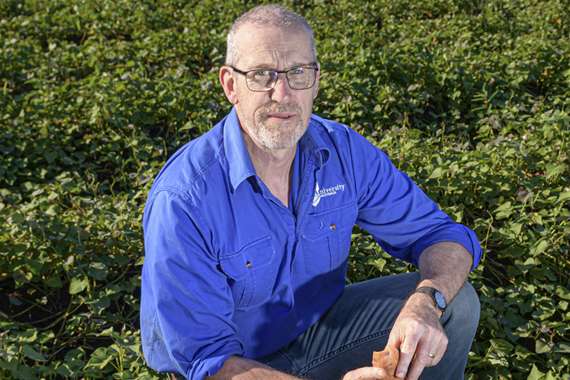Commercialising Carbs has Sweet Benefits for All
Description
Working in partnership with Australian and Papua New Guinea (PNG) organisations, CQUniversity is leading a research project that delivers new income generating opportunities and improved livelihoods for PNG farming communities. The project team is making pathogen-free sweet potato planting material available to local farmers, in order to increase crop yield and quality, and helping farmers access markets for their produce.
Partners
Australian Centre for International Agricultural Research, Fresh Produce Development Agency (PNG), National Agriculture Research Institute (PNG), Queensland Government's Department of Agriculture and Fisheries, Australian National University Enterprises
Impact
Rural communities in the PNG highlands are earning an income from growing and selling sweet potato, traditionally just a subsistence crop in PNG, and are benefitting from resulting improvements in their livelihoods. The Australian sweet potato industry is benefitting from the development of new virus detection methodology and knowledge of the viruses prevalent in PNG that may be a biosecurity threat to Australian growers.
Professor Philip Brown
Sweet potato is the most important vegetable crop in Papua New Guinea (PNG), however, over time it has become heavily infected with viral diseases, leaving many locals with low yields.
Thanks to a landmark research project, led by CQUniversity, technologies are currently being trialled to help improve crop yields and quality, and examine value chains to connect growers to markets and provide rural communities with a new source of income.
At the same time, the Australian sweet potato industry is benefitting from the development of new virus detection methodology and knowledge of the viruses prevalent in PNG that may be a biosecurity threat to Australian growers.
Project work commenced in 2017, when CQUniversity's Institute for Future Farming Systems commenced research into the commercialisation of PNG's sweet potato crop, thanks to a $5 million Australian Centre for International Agricultural Research (ACIAR) grant.
The five-year project involves international collaboration with the PNG National Agricultural Research Institute and Fresh Produce Development Authority, as well as the Queensland Government's Department of Agriculture and Fisheries and the Australian National University Enterprises.
CQUniversity Professor Philip Brown said PNG farmers had historically grown sweet potato, also known locally as kaukau, by planting cuttings taken from old crop, which meant if the original crop was infected with a virus, the new crop would be too.
"The Queensland Government's Department of Agriculture and Fisheries has helped the PNG National Agriculture Research Institute to treat local kaukau varieties to remove any viruses that they may have contained, creating a collection of 'clean kaukau' varieties," explains Prof Brown.
"Crops grown from clean kaukau have up to 50 per cent higher yields than the same variety before virus removal. The kaukau roots are also smoother and a more even shape, making them more attractive to buyers. Farmers have also reported that they taste much better.
"To generate a large volume of clean kaukau vines for distribution to farmers, the project has established 14 commercial scale insect proof screenhouses. Clean planting material can be produced in these structures as the aphids (small sap-sucking insects) and white fly, that transmit the viruses from infected to non-infected plants, cannot enter."
Prof Brown says PNG farmers who grow kaukau as a commercial crop were required to find markets that would provide them with a reliable source of income. "Most produce in PNG is sold through open marketplaces in towns and cities, but supermarkets are emerging as a new market for fresh produce.
"More affluent consumers in the cities are prepared to pay more for produce in supermarkets as the shopping experience is safer than the open markets. Therefore, the project team, led by the Fresh Produce Development Agency (FPDA), have assisted farmers to gain access to these supermarkets.
"The volume of kaukau being transported from the PNG highlands to the coastal cities of Lae and Port Moresby is growing, as farmers build more robust value chains to these cities. The project team will continue to support the development of value chains for kaukau to this higher value market."
The success of the project, thus far, has been a direct result of a comprehensive training and capacity building program. By working with local communities in order to align the training program to their wants and needs, project partners have improved farmers' skills and knowledge to allow them to better produce and market kaukau.
Prof Brown says the project hadn't been without its challenges. "There are many logistical challenges and cultural issues that need be addressed when implementing the clean kaukau production and distribution scheme. The CQUniversity research team is, however, committed to investigating these issues in order to implement evidence-based solutions."
Connect with UQUniversity
At CQUniversity we know the value of our connections locally and around the world. Our partnerships help us create opportunities, deliver solutions and change lives. From time to time, we share our Connections Count update where we share our highlights, including research impact stories like the ones below. Sign up to become one of our valued connections.

